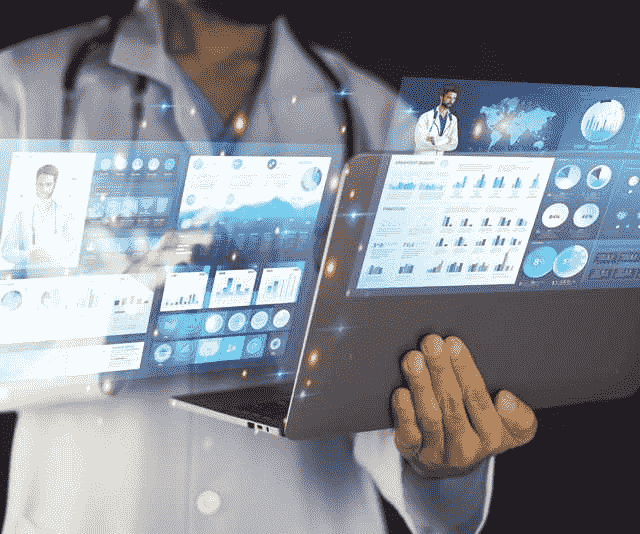In today’s rapidly evolving healthcare landscape, the intersection of technology and patient care is becoming increasingly significant. The advent of advanced healthcare software has revolutionized the way healthcare providers operate, offering unprecedented opportunities to improve patient outcomes and reduce costs.
This blog will delve into how the best healthcare software achieves these dual goals, exploring various facets such as electronic health records (EHRs), telemedicine, data analytics, and patient management systems.
The Role of Electronic Health Records (EHRs)
Streamlining Patient Information
EHRs play a crucial role in modern healthcare by providing a centralized repository for patient data. This seamless accessibility to comprehensive patient records ensures that healthcare providers can make informed decisions promptly. It eliminates the need for redundant tests and procedures, thereby reducing costs and enhancing the efficiency of patient care.
Improved Communication Among Healthcare Providers
One of the significant advantages of EHRs is the facilitation of better communication among different healthcare providers. By having access to a patient’s complete medical history, specialists can collaborate more effectively, leading to improved treatment plans and better patient outcomes.
Enhanced Patient Safety
EHRs contribute significantly to patient safety by minimizing errors related to medication and treatment. Automated alerts for drug interactions, allergies, and potential health risks ensure that patients receive the most appropriate and safe care possible.
Telemedicine: Bringing Healthcare to Your Doorstep
Access to Care
Telemedicine has emerged as a game-changer, particularly in remote and underserved areas. By leveraging video conferencing and mobile health applications, patients can access healthcare services without the need for travel. This not only saves time and money but also ensures that patients receive timely care.
Continuity of Care
Regular follow-ups and continuous monitoring are essential for managing chronic conditions. Telemedicine facilitates ongoing patient engagement, allowing healthcare providers to track patient progress and intervene promptly if necessary. This continuous care model leads to better management of chronic diseases and improved patient outcomes.
Cost Savings
Telemedicine significantly reduces the need for in-person visits, which translates to cost savings for both patients and healthcare providers. By minimizing the reliance on physical infrastructure, healthcare organizations can allocate resources more efficiently and reduce operational costs.
Data Analytics: Turning Data into Insights
Predictive Analytics for Better Decision-Making
Data analytics tools enable healthcare providers to analyze vast amounts of patient data to identify trends and predict outcomes. Predictive analytics can forecast potential health issues before they become critical, allowing for proactive intervention and improved patient outcomes.
Personalized Medicine
With the help of data analytics, healthcare providers can offer personalized treatment plans tailored to individual patient needs. By analyzing genetic information, lifestyle factors, and medical history, providers can develop more effective treatment strategies that enhance patient outcomes.
Operational Efficiency
Data analytics also plays a crucial role in optimizing hospital operations. By analyzing patient flow, resource utilization, and staff performance, healthcare organizations can identify inefficiencies and implement corrective measures. This results in reduced costs and improved service delivery.
Patient Management Systems: Enhancing Care Coordination
Streamlined Workflow
Patient management systems automate various administrative tasks, such as appointment scheduling, billing, and insurance claims processing. This streamlining of workflows reduces administrative burden, allowing healthcare providers to focus more on patient care.
Improved Patient Engagement
Effective patient management systems facilitate better communication between healthcare providers and patients. Through patient portals, individuals can access their medical records, schedule appointments, and communicate with their healthcare providers. This enhanced engagement leads to better adherence to treatment plans and improved health outcomes.
Comprehensive Care Coordination
Patient management systems ensure that all aspects of a patient’s care are coordinated effectively. By integrating various healthcare services, these systems provide a holistic view of patient care, ensuring that all healthcare providers are on the same page. This comprehensive coordination reduces the risk of errors and improves patient outcomes.
The Future of Healthcare Software
The future of healthcare software looks promising, with advancements in artificial intelligence, machine learning, and blockchain technology poised to further transform the industry. These innovations will continue to drive improvements in patient outcomes and cost reductions.
AI and Machine Learning
AI and machine learning algorithms can analyze vast amounts of healthcare data to identify patterns and make accurate predictions. These technologies can assist in diagnosing diseases, personalizing treatment plans, and optimizing hospital operations.
Blockchain Technology
Blockchain technology offers a secure and transparent way to manage patient data. By providing a decentralized and immutable ledger, blockchain ensures the integrity and confidentiality of patient information. This technology can enhance data sharing among healthcare providers, leading to better care coordination and improved patient outcomes.
Conclusion
The integration of advanced healthcare software has the potential to revolutionize patient care by improving outcomes and reducing costs. From EHRs and telemedicine to data analytics and patient management systems, these technologies offer numerous benefits that enhance the efficiency and effectiveness of healthcare delivery.
If you’re a healthcare provider looking to improve patient outcomes and reduce costs, investing in the best healthcare software is a crucial step. By leveraging these technologies, you can enhance patient care, streamline operations, and achieve significant cost savings.
Ready to take your healthcare practice to the next level? Contact us today to learn more about our innovative healthcare software Health Diary and how they can benefit your organization.
FAQs
Q1. What is healthcare software, and why is it important?
Healthcare software encompasses various digital tools and platforms designed to improve the efficiency and effectiveness of healthcare delivery. It is important because it enhances patient care, streamlines operations, and reduces costs through better data management, improved communication, and advanced analytics.
Q2. How does telemedicine improve patient outcomes?
Telemedicine improves patient outcomes by providing remote access to healthcare services, facilitating continuous monitoring and follow-ups, and enabling timely interventions. It ensures that patients receive care promptly, which is crucial for managing chronic conditions and preventing complications.
Q3. What are the cost benefits of using EHRs in healthcare?
EHRs offer several cost benefits, including reduced paperwork, elimination of redundant tests and procedures, improved billing accuracy, and enhanced resource allocation. By streamlining administrative tasks and improving patient care, EHRs contribute to significant cost savings for healthcare organizations.
Q4. How can data analytics enhance personalized medicine?
Data analytics enhances personalized medicine by analyzing a patient’s genetic information, lifestyle factors, and medical history to develop tailored treatment plans. This individualized approach ensures that patients receive the most effective therapies, leading to better health outcomes.
Q5. What future technologies are expected to impact healthcare software?
Future technologies expected to impact healthcare software include artificial intelligence (AI), machine learning, and blockchain technology. AI and machine learning can provide predictive analytics and personalized treatment recommendations, while blockchain offers secure and transparent data management, enhancing care coordination and patient outcomes.




